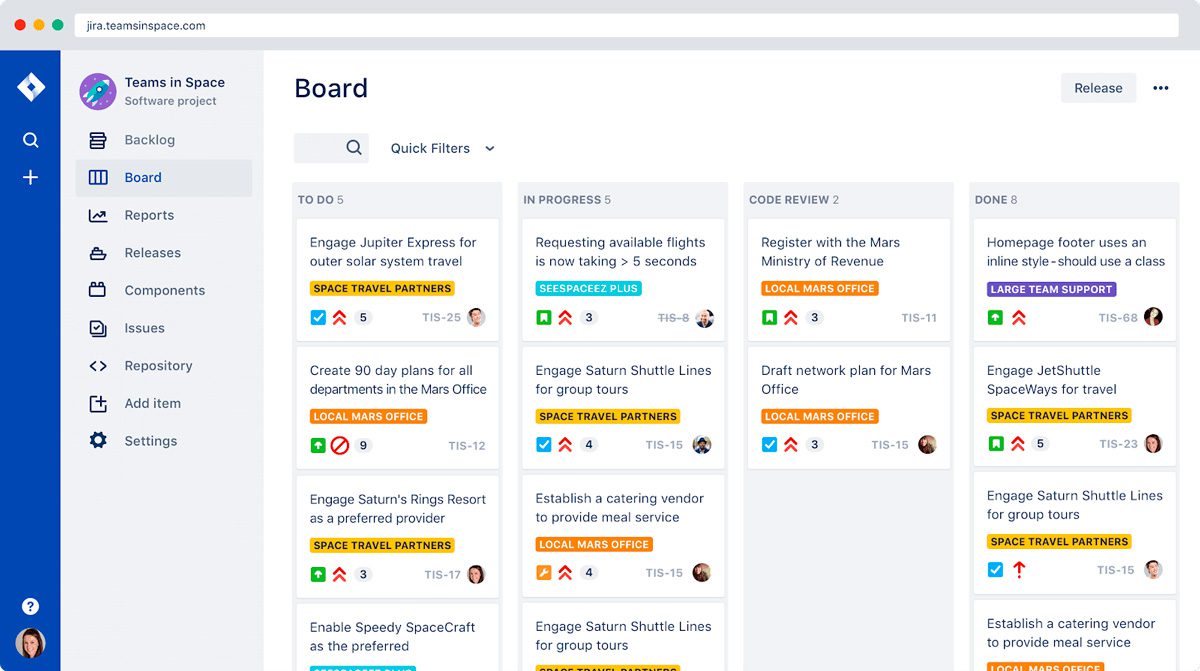And what your company stands to gain
Successful marketing campaigns are almost always the result of team efforts. To succeed at positioning — pitching your business to fulfill one highly specialized customer need — you typically need a department full of marketing professionals, so as to create a high volume of materials and spread them effectively.
However, applying the principles of positioning across an entire team can be difficult, even when you have digital communication tools at your disposal. If one device experiences hardware problems, for example, all channels become effectively cut off. Then there are the even bigger obstacles of unstable servers and a lack of scalability.
Fortunately, the ongoing Cloud revolution has solved these problems for marketing teams, giving them uninhibited access to marketing updates, corrections and cooperation. With the following six capabilities from Cloud-based communication tools, marketing teams have more ability than ever before to stay aligned and produce better positioned materials.
1. Group Chats
Sending instant messages to entire teams is something companies sometimes take for granted. However, it’s still a tool that’s so important it deserves to be described here.
Group chats enable entire teams to clarify topics, make requests or simply stay up to date with one another instantly, avoiding the sometimes cumbersome nature of emails. Since marketing works best when everyone is on the same page, group chats are indispensable for sending urgent requests as well as communicating less time-sensitive matters.
While group chats can be enabled without the Cloud, consider that hosting them in the Cloud will establish wider access across devices. With the Cloud, you don’t have to worry whether an on-prem server is functioning or whether employees are using the right device for your messages to be seen.
2. Project Management Tools
Have you ever led (or even been part of) a marketing team that starts each work day late, simply because employees have to personally ask what projects they’re responsible for working on that day?
This scenario is frustratingly common. But, the Cloud can solve this issue easily with taskboards and project management charts. Keeping these boards open in the Cloud will ensure they’re accessible to and editable by all relevant members in your organization. Additionally, organizing these workflows with the Kanban method will ensure everyone maximizes their day’s productivity.

An example Kanban board using the Cloud-based solution Jira.
Using these workflow systems alongside Cloud-hosted communications systems will also combine their boost to productivity with key collaborative benefits, especially faster correspondence.
3. File Sharing
On the subject of exchanging information, Cloud communication systems are a fantastic choice for sharing files with colleagues. Typically, these solutions allow files to be shared with group chats or even during voice or video calls, combining accessibility with collaboration.
In addition to providing the whole team with uniform access, regardless of where they’re working from, putting this feature in the Cloud creates added reliability, as even an individual server failure won’t prevent your marketing colleagues from accessing images, written pieces or plans.
4. Videoconferencing
Obviously, regular meetings with the entire marketing team are incredibly important to ensure that everyone understands the nature of their upcoming responsibilities. With the Cloud, these meetings can happen over video, bringing in remote team members or contractors as needed.
As with other tools, videoconferencing can be done with an on-premise system, but bear in mind that using this solution through the Cloud will allow for wider accessibility and improved failover for more reliable operation.
These last points are significant because videoconferences don’t have to be only for work: just as significant for marketing efforts is building team morale and rapport with virtual coffee breaks or happy hours, where videoconferences let remote or distant colleagues connect with those in a separate office.
5. Shared Data
Of course, the successfulness of marketing depends on how well it lines up with real customers’ interests and desires. That’s why it’s highly important to consider marketing efforts against real data collected by your company or partnered businesses.
Where the Cloud comes in is gathering, processing and sharing your data. With a Cloud-based communication system, teams across your company can collect information about their calls and emails with customers, then assemble it all into a shared data lake. From there, information is processed by automated systems and made ready for analysis by marketing.
All this helps to ensure that when you align your marketing team, you’re orienting everyone to a plan that’s both shared and effective.
6. Scalability
As your marketing efforts become more effective, you’ll probably bring on new employees, or even temporary contractors whom you want to keep in the loop. Fortunately, the Cloud can easily accommodate these shifts.
In contrast to painstakingly installing physical devices and setting users up with account after account, using the Cloud allows you to add users to a wide range of tools quickly and easily. This way, onboarding happens at a fraction of the expected time, and your team can expand with less of a wait period and minimal confusion over marketing plans and direction.
What this means for your team
All of these capabilities are necessarily designed to keep teams in constant contact with one another, any time and anyplace. For marketing teams specifically, this means there’s zero reason anyone should work against your company’s positioning: with team members always just a click away, materials can always be double checked and ideas can always be considered as a group.
This combination of zero downtime and effortless collaboration ensures effectively keeps your marketing efforts unified, giving it the best capability to adhere to positioning. Used to its fullest capabilities, the Cloud can be truly invaluable in ensuring your company’s name reaches — and stays within — your customer’s mind.



